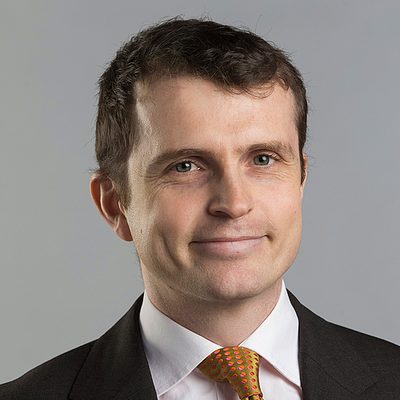Research
In December 1939 a German named Gerda Luyken discussed the state of the art of eugenics research in the United States, focussing especially on the Harvard Survey of the Relation of Race and Nationality to Crime in the United States. She noted approvingly that the statistical analysis carried out by the project had finally laid to rest the “environmental theory of crime,” providing conclusive proof that “the primary cause of crime is biological.”[1] Yet at the same time she noted with regret that, unlike in Germany, the insights into the racial nature of criminal behaviour had not resulted in appropriate policy action in the United States.
While discussions of eugenics were by no means uncommon in the 1930s, what made this piece significant was that it appeared in Current Issues, a student-edited journal produced at Carleton College, and was written by an exchange student whose “sympathies were entirely Nazi”[2] as college records noted. More remarkable still, Carleton College simultaneously hosted refugee students fleeing Nazi persecution in Austria and Czechoslovakia as well as German refugee academics such as Heinrich P. Jordan, forced out of the German Foreign Office because he was Jewish.
In what must have made for an uncomfortable coexistence on the campus of a small liberal arts college in the Midwest, I recognized a pattern familiar from previous research into transatlantic networks of administrative scholars during the 1930s. While diplomatic relations between the United States and Nazi Germany were cool, academic exchanges and scholarly dialogue continued, if in ambiguous and contradictory ways. Participating individuals and institutions constantly sought to reconcile ideals of unbiased scientific enquiry and open dialogue with German academia while distancing themselves from the Nazi political regime.
Throughout the 1930s much of America’s intellectual establishment acted on the assumption that Germans and Nazis could be clearly separated. As such, many of the facets in the relationship between the two nations escape the abstract opposition between democracy and dictatorship. Records of the kind found in campus publications at the time raise the question of how specifically American institutions and individuals negotiated these complexities. What rationale was used to justify continued co-operation and exchange? What compromises had to be made? And, finally, what does it tell us about representations of dictatorship and democracy prior to the Second World War?
Student exchanges between the United States and Nazi Germany are a particularly good fit for the NEH’s “Common Good: The Humanities in the Public Square” initiative, as my project explicitly focuses on the idea of the “foreign” in the U.S. — a question as germane during the 1930s as it is now, with the country riven by debates over immigration and American-ness. In recent years, a range of scholars have contributed to a growing literature on transnationalism in intellectual history, especially in the history of 20th century political thought, where studies of intellectual migration and of American philanthropy have prompted — among other effects — a re-evaluation of the origins of the Cold War. Some of this literature has focused on refugees from Nazi Germany[3] and explored the role of transnational institutions in establishing patterns of interaction between centre and periphery of the post-1945 world.[4]
My project seeks to explore a significant gap in the existing literature by asking whether transnational cultural networks are necessarily a means to escape the restrictions of nation state, as much of the existing work seems to claim. Could they not also serve to support national projects and agendas? Preliminary research suggests that precisely the aloofness from politics that made cultural organizations vulnerable to political influence.[5] Studying educational exchanges between Germany and the United States and the perception of both nations through the eyes of participants represents an excellent way to approach these questions.
To this end, I am looking to use the NEH Summer Stipend to do research in the archives of an organization at the heart of transatlantic exchanges during the 1930s: the Institute of International Education (IIE) in New York City. The Institute, under the leadership of Stephen Duggan, was largely responsible for co-ordinating academic exchanges between American and European Institutions and saw itself very much as a cultural embassy.[6] It was here that the contradictions in negotiating the complex relationship between the United States and European dictatorships were especially apparent. As Stephen Duggan noted in his 1934 report to the Board of Trustees:
“I spent most of my time in countries under dictatorship. … But never before was it so wise and necessary for this Institute to work in its chosen field. There is, after all, a unity among men which transcends differences in their forms of government. … We have lessons to learn from dictatorships. They have a definiteness of aim and constancy of purpose which are sadly lacking among the conflicting interests of democracy.”[7]
The ambiguity emerging from Duggan’s report on a European trip taken after 1933 was also reflected in the everyday operations of the Institute. It was home to the now famous “Committee in Aid of Displaced Scholars” that, under leadership of Edward Morrow, placed many German refugee academics in American institutions of higher education. At the same time, the Institute continued to organize student exchanges that saw significant numbers of American students leave for Europe to experience German Kultur, and opened American campuses to many young Germans in return.
Significance and Contribution
My project seeks to advance our understanding of pre- and post-World War II cultural diplomacy in three different ways. First, it will explore the workings of educational transatlantic networks during a period seen as dominated by isolationism. Second, the project will question the assumption that politics exclusively determined the relationship between regimes as different as the United States and Nazi Germany. In some instances culture, education, and academic research, and the supposedly universal values underlying them, were safer, more fruitful bases for a continued relationship with a politically unsavoury regime. Third, my project shows that the so-called “Cold War consensus” based on a postwar cultural concept of the “Atlantic Community” may have important prewar antecedents that remain little understood.
Methodology and Sources
As part of my doctoral work I studied the role of transatlantic networks in spreading new ideas about crisis governance from Europe to the United States. I argued that throughout the 1930s an extensive transatlantic network of administrators, scholars, and political commentators came to share a new paradigm of state administration based on the idea of executive intervention in politics and the economy. Scholars, administrators and commentators came to regard the New Deal as part of a wider set of homologous experiments in dealing with economic and political crises that spanned the entire Western World.
My research examined the problems and ambiguities of transferring insights that could supposedly be gleaned from experiments across deepening political divides. Transatlantic networks were crucial in this transfer of ideas because they regarded the modern state primarily as an administrative rather than a political institution that could be managed according to scientific principles. To a universal science of state administration, the distinction between democracy and dictatorship was secondary at best – a crucial condition for the transatlantic flow of ideas to continue throughout the 1930s. My doctoral dissertation suggests that, like science, the idea of a universal culture similarly enabled continuity in German-American relations in the realm of education.
[1] Gerda Luyken (1939), “Crime and Man,” in: Current Issues, vol. 2-3, p 14.
[2] Frank B. Kellogg Foundation Annual Report (1940), Carleton College Archives, Gould Library, p 15.
[3] Söllner, A. & Ash, M.G. (eds.)(2002), Forced Migration and Scientific Change. Émigré German-Speaking Scientists and Scholars after 1933, Cambridge: Cambridge University Press.
[4] Udi Greenberg, The Weimar Century, Princeton: Princeton University Press, 2014. Anne Kornhauser, The American Leviathan, Raleigh: Penn, 2015.
[5] Rennie W. Brantz (1989), German-American Friendship: The Carl Schurz Vereinigung, 1926-1942, The International History Review, 14, 2, 229-251.
[6] Institute of International Education (1933), Fourteenth Annual Report of the Director, p 7.
[7] Institute of International Education (1934), Fifteenth Annual Report of the Director, p 9.

